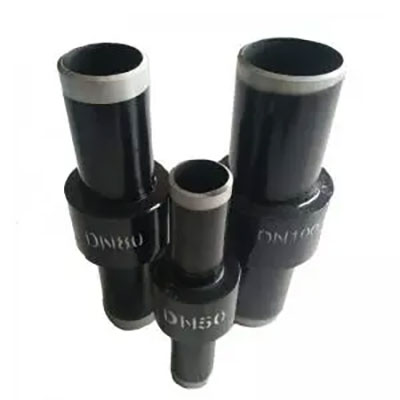In the world of pipeline infrastructure, the importance of integrally insulated joints cannot be overstated. These critical components play a key role in ensuring the integrity and safety of pipeline systems, especially in industries such as heating, oil, gas, chemicals, thermal power plants and nuclear power plants. Understanding the importance of Monolithic insulation joints is critical to understanding their impact on the overall efficiency and reliability of pipeline operations.
Integral insulating joints are used as electrical connectors and are widely used to connect cables or wires, thus facilitating optimal electrical connections between the various components of the pipeline infrastructure. Their main function is to provide insulation protection, effectively preventing leakage and minimizing the risk of short circuits. This is particularly important in environments where potential electrical hazards are a constant concern.
Leading products in this field include bellows, corrugated compensators, flanges, transmission joints, elbows, tees, reducers, caps and forged fittings, which are integral to the seamless operation of piping systems. These components are designed and manufactured to meet the stringent requirements of various industrial applications, ensuring the highest standards of performance and durability.
In the context of pipeline infrastructure, the deployment of Monolithic insulated joints provides manifold benefits. One of the main advantages is their ability to effectively isolate different parts of the pipe, thereby preventing unwanted current flow and mitigating the potential for corrosion. By creating a reliable barrier to stray currents, these insulated joints make a significant contribution to the overall lifespan and operational efficiency of the pipe network.
Additionally, the incorporation of Monolithic insulated joints helps improve the overall safety of pipeline operations. These components play a vital role in protecting people, equipment and the surrounding environment from potential hazards by minimizing the risk of electrical failure and ensuring safe electrical connections. This proactive approach to risk mitigation emphasizes the integral nature of integrally insulated joints in maintaining safe and sustainable pipeline infrastructure.
As the demand for efficient and reliable piping systems in various industries continues to escalate, the role of Monolithic insulated joints has become more and more prominent. Their ability to facilitate seamless electrical connections while providing necessary insulation highlights their integral nature in ensuring optimal performance and safety of pipeline infrastructure.
In summary, understanding the importance of integrally insulated joints in pipeline infrastructure is critical for stakeholders in different industrial sectors. By recognizing the critical role these components play in ensuring electrical connections, insulation protection, and overall operational integrity, organizations can make informed decisions regarding the selection and integration of integral insulation joints in piping systems. Recognizing the importance of these critical components is critical to fostering a resilient and sustainable pipeline infrastructure that meets the ever-changing needs of modern industry.
Post time: Sep-06-2024





